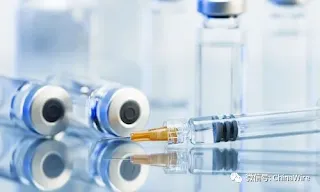Chinese volunteers in a clinical trial for the first COVID-19 vaccine developed by the country's military scientists received injections on Friday, marking a significant breakthrough that highlights China's strong research capabilities, according to experts.
The first batch of volunteers, all Wuhan permanent residents aged between 18 and 60, has been divided into three groups, each consisting of 36 members, the Science and Technology Daily reported on Saturday.
They will be quarantined for 14 days and researchers will follow them for six months to monitor any adverse reactions.
The product is a recombined vaccine jointly developed by Tianjin-based biotechnology company CanSino Biologics Inc and a research team headed by Chen Wei, an expert of biological hazard prevention and control from the PLA Academy of Military Medical Sciences and a major general of the Chinese military.
Since arriving in Wuhan in late January, Chen's team has undertaken pharmaceutical and toxicological research for a COVID-19 vaccine in cooperation with local companies, based on the military team's previous successful experience in developing an Ebola vaccine.
Unlike other clinical trials, in the trial conducted by Chen's team, volunteers do not need to be infected with the novel coronavirus after receiving the vaccination. Rather, the researchers will test if anti-bodies have been created and if the volunteers have become immune to the virus.
The product passed a clinical research registration review and was approved for clinical trial on Monday night, about 19 hours after the US announced it would start human trials for the first coronavirus vaccine, revealing the two largest economies are level in the race to resolve the public health crisis.
US researchers administered the first injections in the country's first trial of an experimental coronavirus vaccine on Monday. The US' vaccine candidate, code-named mRNA-1273, was developed by the National Institutes of Health and the Massachusetts-based biotechnology company Moderna Inc.
The development of the recombinant vaccine involved inserting the novel coronavirus' DNA encoding antigen into other microorganisms to create a new virus, which will not infect receivers with the disease, according to a Beijing-based immunology expert who asked to remain anonymous.
The difference between a recombinant vaccine and an RNA vaccine is that the former is protein-based and the latter is an RNA sequence.
A recombinant vaccine requires a longer research period than an RNA vaccine, but the fact that China is beginning human trials shortly after the US demonstrates its strong vaccine research and development capabilities, the expert told the Global Times on Saturday.
He called the move a remarkable step in the global competition of coronavirus vaccine development, showing China's latest breakthrough in vaccine R&D.
Following clinical trials, experts estimate it will take at least one year to complete further procedures before the vaccine officially enters the market. But some products may be available for emergency usage by the end of this year due to Chinese authorities' nod to a green channel for drugs and vaccines as well as the joint efforts of experts and researchers across the country, according to analysts.
China gave top priority to vaccine development as early as the beginning of the outbreak and has been accelerating the process according to law and on the premise of safety and effectiveness, Wang Junzhi, an academician at the Chinese Academy of Engineering, told a press conference in Beijing on Tuesday.
China's health authority previously announced that some of the vaccines developed in the country could be available in April for use in emergency situations, given that the country is developing five types of vaccines at the same time, including an inactivated vaccine, an attenuated influenza virus vaccine and a nucleic acid-based vaccine.
While some analysts worry it could be difficult to recruit volunteers for vaccine trials as the situation gradually eases in China, Chinese netizens have actively expressed their willingness to join the trials and contribute to research when it expands to places outside Wuhan.
Hai Feng (pseudonym), who was among the first group of volunteers to receive the trial vaccine on Friday, told media that he had no regrets and that he "would do what he could to help the country and society."
Li Ming (pseudonym), a resident in Wuhan and the husband of a recovered COVID-19 patient, signed up for the trial as soon as he heard of the call for volunteers.
"If people have to live with the novel coronavirus for a long time, a vaccine is the most important part of the efforts to fight against it," Li was quoted to have said by the Science and Technology Daily.
By skunty empire

Comments
Post a Comment
comments below